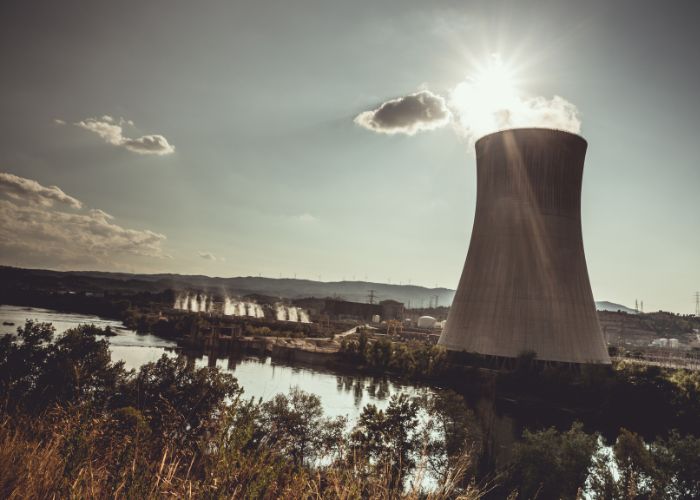The Spanish government refuses to include nuclear energy, which accounts for 20% of the electricity generated in Spain, in the debate on the energy crisis. The Partido Popular, Vox and Ciudadanos parties have called on the government to revise plans to close the plants and extend their lifetime.
After the VAT on gas was reduced to 5% and the problem of cogeneration in industry was solved at the last minute, nuclear power was the last variable in the energy debate between the social democratic PSOE and the conservative PP.
Seven reactors are still operating in Spain today. The process of first disconnection will start in 2025. Prime Minister Pedro Sánchez reiterated that there will be no changes in the area. ‘This government has no intention of extending the life of these plants. I don’t think it will be necessary,’ the president assured in his debate with Alberto Núñez Feijóo of the PP on Tuesday in the Senate.
PP wants reconsideration
The PP’s proposal is to reconsider the idea. ‘Spain is the only one of 13 countries with nuclear power plants in Europe that has not reconsidered its closure plans,’ the PP leader said. Germany, announced on Monday it will leave two of its three plants in reserve should they are needed next winter. Their final closure was originally planned for the end of this year,
‘Even if we wanted to build a new plant, which this government does not want, it would take 15 years to get it operational. It is a fallacy for today’s energy problem,’ Sánchez argued. Moreover, according to him, there are no private companies interested in the matter. ‘To build a reactor you have to talk to companies. And I can tell you that there are no companies interested in our country. Your defence of nuclear power is a mistake,’ he replied to Feijóo.
However, the PP is not the only one in favour of rethinking the nuclear debate. Vox and Ciudadanos also support it. ‘I haven’t said I want more nuclear power,’ the PP leader defended himself. ‘But extending the life of nuclear power plants is a fair consideration that needs to be made again’. According to the government, the proposed closures after 2027 were agreed with the owners of the plants themselves.
Population is negative towards nuclear power
Apart from the political debate on the future of this technology, the majority of citizens have a negative attitude towards it. According to the GAD3 barometer published by the newspaper NIUS last February, 51.6% of the population considers it unsafe or not safe at all. Moreover, six out of ten surveyed stated they would not want to have a power plant installed in their town. The government has used this argument to continue its attack on the PP’s proposed reopening of the nuclear debate. Furthermore, the proposal is also openly supported by the President of the Community of Madrid.
‘I would like to know if Mrs Ayuso is willing to build a new plant in Madrid. If so, it would be good if she could say in which city in the region,’ Sánchez challenged.
Despite the fact that the majority rejects nuclear power, 65% of those polled in the GAD3 barometer for NIUS believe that nuclear power should be used to reduce energy dependence.
Last year, the seven nuclear power plants supplied a fifth of the electricity generated in Spain. According to the schedule, which is included in the integrated national energy and climate plan (PNIEC) of the Ministry for Ecological Transition, the oldest plants, Almaraz I and II, Ascó I and Cofrentes, will be decommissioned from 2027. However, the process for their final closure begins two years earlier. Subsequently, Asco II, Vandellós II and Trillo are scheduled to be shut down between 2031 and 2035.
Orderly, staggered and flexible
The plan speaks of an ‘orderly, staggered and flexible closure’. The flexibility referred to has been applied by extending the useful life of the plants to more than 40 years. Otherwise, all nuclear power plants would have to be closed by 2030.
Also read: Wind power overtakes nuclear power in Spain


